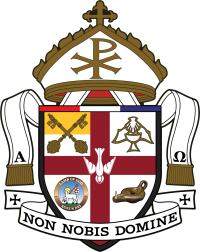U.S. Army Chaplaincy

What Army Chaplains Do:
As an Army chaplain you will have the responsibility of caring for the spiritual well-being of Soldiers and their Families. An Army chaplain’s parish can consist of over 1,500 people. For this reason, the Army chaplain is crucial to the success of the Army’s mission. Exercising leadership in things that are spiritual requires a special person with a unique calling.
The Army Chaplaincy is a religiously diverse population reflecting the diversity of the Army, yet each chaplain must minister in accordance with the guidelines of their distinct faith group. Army Chaplains oversee the spiritual care of their assigned units wherever they may train or deploy. They also assist with the congregational care of their assigned posts performing religious ceremonies, rituals, and rites in accordance with their respective faiths.
Unlike most officers in the Army, a chaplain begins serving as a staff officer immediately. As a member of the commander’s special staff, the chaplain is responsible for providing advice in matters pertaining to religion, morals, and morale. The chaplain serves the Army with a chaplain assistant (56M) as part of a Unit Ministry Team (UMT). As a non-combatant, chaplains do not possess a weapon. The chaplain assistant provides security for the UMT and assists with the administrative aspects of the UMT’s ministry. Fully trained in the technical arena of religious support and Soldier-specific tasks, chaplain assistants are an integral part of the UMT’s ministry and mission.
Other roles and responsibilities common to the chaplaincy:
• Overseeing a full program of religious ministries, including workshops, counseling sessions, religious education, and special events.
• Officiating at official ceremonies such as military functions, funerals, and memorials.
• Providing religious ministry to a variety of armed service personnel and civilians from the US, foreign nations, and agencies.
Requirements:
To be an Officer in the Army Chaplain Corps, you must obtain an ecclesiastical endorsement from your faith group. This endorsement should certify that you are:
• An ordained priest in a CEC Parish for at least two years.
• Qualified spiritually, morally, intellectually, and emotionally to serve as a Chaplain in the Army.
• Sensitive to religious pluralism and able to provide for the free exercise of religion for all military personnel, their family members and civilians who work for the Army.
• Possess a Baccalaureate degree of not less than 120 semester hours.
• Possess a 72-semester hour graduate degree in theological or religious studies from an ATS accredited seminary. This is usually a Master of Divinity degree.
Training:
Chaplains do not go through Army Basic Training. Instead, they attend the Chaplain Basic Officer Leadership Course (CBOLC), which is a 12-week course taught at Fort Jackson, S.C. This course is an introduction to the non-combatant common core skills, Army writing and Chaplaincy-specific training.
Helpful Skills:
Being a leader in the Army requires certain qualities. A leader exhibits self-discipline, initiative, confidence, and intelligence. They are physically fit and can perform under physical and mental pressures. Leaders make decisions quickly, always focusing on completing the mission successfully, and show respect for their subordinates and other military officers. Leaders lead from the front and adjust to environments that are always changing. They are judged by their ability to make decisions on their own and bear ultimate moral responsibility for those decisions.
Army Chaplain Candidate Program
You do not need to wait until ordination to join the Army Chaplaincy. You can train to become an Army Chaplain at the same time you are training for the ministry. The training and experience you will receive as a Chaplain Candidate will be a rich addition to your ministerial education and training. All Chaplain Candidates are commissioned officers assigned to the Army Reserve in the Chaplain Branch.
Chaplain Basic Officer Leadership Course
All Chaplain Candidates are encouraged to attend Chaplain Basic Officers Leadership Course (CHBOLC). CHBOLC is 12 weeks long and is offered three times a year (winter, summer, and fall). Normally a candidate does the first half of CHBOLC (Chaplain Initial Military Training/CIMT and Phase 1) as soon as possible since it is a prerequisite for all other training in the Chaplain Candidate Program. Once halfway through their qualifying degree, Chaplain Candidates can complete Phases II and III. Candidates who enter the Chaplain Candidate Program after the half-way point of their graduate program may complete CHBOLC at one time.
Paid Practicums
A Chaplain Candidate may train up to 30 days each year under the supervision of a senior chaplain at a military installation. This training, called a “practicum,” is offered to all candidates once they have completed Phase 1 of CHBOLC at Ft. Jackson, SC.
For More Information Contact:
Bishop William David Epps, Military Chaplain Endorser
Email: davidepps@ctk.life or cell phone at 770-714-2560
Address information to:
The Cathedral of Christ the King
Chaplain Military Office
ATTN: Bishop David Epps
4881 Hwy 34 E
Sharpsburg, Ga 30277
Endorsing Staff:
Reverend Greg Schluter, CAPT, CHC, USN, Ret
Email: frgreg@priest.com or cell phone at 760-385-8625
Army Recruiting Website: http://www.goarmy.com/chaplain.html
